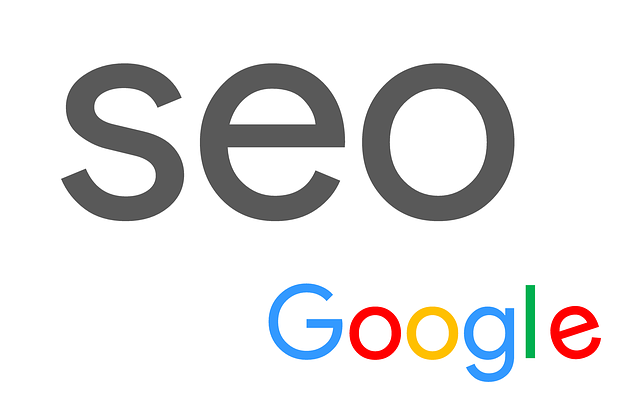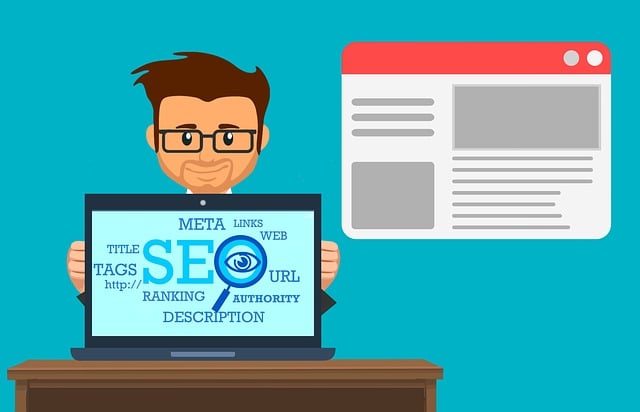Meta tags are crucial for On-Page SEO, providing search engines with context about web pages. Effective meta tag optimization involves creating compelling title tags that include primary keywords and attracting clicks through keyword-rich meta descriptions. This strategy boosts online visibility, increases organic traffic, improves search rankings, and enhances user experience. By integrating relevant keywords into tags, optimizing load speeds, ensuring mobile responsiveness, and tracking key metrics, you can master On-Page SEO and drive higher conversion rates.
In today’s digital landscape, effective meta tag optimization is a game-changer for online visibility. This article delves into the fundamentals of on-page SEO, guiding you through the process of enhancing search engine rankings with strategic meta tags. From understanding the basics to crafting compelling title tags and descriptions, we explore key elements and best practices. Learn how keywords play a vital role in your meta tag strategy and discover technical considerations for successful implementation. Finally, measure success by analyzing meta tag performance.
Understanding Meta Tags: The Basics of On-Page SEO

Meta tags are essential elements in the world of On-Page SEO, acting as a bridge between your website and search engine algorithms. They provide critical information about your web page’s content, context, and significance. Search engines rely on these tags to understand what your page is about, who it’s for, and why it should appear in specific search results.
The two primary meta tags, Title and Description, are particularly crucial. The title tag, often displayed as the page title in search results, must be descriptive, unique, and include relevant keywords. It summarizes the content, giving users a clear idea of what they can expect. Meanwhile, the meta description provides a concise overview, enticing users to click while also signaling to search engines the primary topics covered on the page.
Importance of Meta Tag Optimization for Online Visibility

In today’s digital landscape, where millions of websites compete for online visibility, Meta Tag Optimization plays a pivotal role in making sure your website stands out. These tags serve as a crucial component of On-Page SEO, acting as a bridge between your site and search engine algorithms. By strategically crafting meta titles and descriptions, you can significantly improve how your pages are displayed in search results, enticing users to click.
Well-optimized meta tags provide a concise overview of your webpage’s content, helping search engines understand your site’s context. This, in turn, boosts your website’s relevance for specific keywords, driving organic traffic. Effective meta tag optimization not only enhances user experience but also positions your website higher in search rankings, fostering better online visibility and engagement.
Key Elements: What to Include in Your Meta Tags

When optimizing your meta tags for on-page SEO, it’s crucial to include key elements that provide a clear and concise representation of your page content. The title tag should be descriptive, ideally incorporating your primary keyword, and capture the essence of what the page is about. It’s the first impression users get when they land on search engine results pages (SERPs), so make it compelling and accurate.
Similarly, the meta description offers a brief summary of the content beneath. While not directly influential in ranking algorithms, it can significantly impact click-through rates. Craft a compelling description that highlights unique selling points, teases valuable insights within the page, and includes relevant keywords naturally. This ensures both search engines and potential visitors understand what to expect when clicking through.
Crafting Compelling Title Tags and Meta Descriptions

Crafting compelling title tags and meta descriptions is a crucial aspect of on-page SEO. These elements are often the first touchpoint between your website and potential visitors, making them vital for capturing attention and driving clicks. A well-crafted title tag should be concise, yet descriptive, accurately reflecting the content of the page while incorporating relevant keywords naturally. Think of it as a mini advertisement for your webpage.
Meta descriptions, on the other hand, provide a brief overview of what users can expect to find on the page. While they don’t directly influence search rankings, compelling meta descriptions can significantly boost click-through rates. They should be enticing and informative, persuading users to click while also including keywords that resonate with their search queries. By harmoniously integrating these elements within your on-page SEO strategy, you enhance both user experience and search engine visibility.
Optimizing for Search Engines: Best Practices

Optimizing for search engines is a crucial aspect of effective On-Page SEO strategies. At its core, this involves understanding how search engine algorithms work and tailoring your meta tags to align with their criteria. One key practice is conducting thorough keyword research to identify relevant terms that your target audience uses when searching for content similar to yours. Incorporating these keywords into your title tag, meta description, and header tags not only enhances visibility but also signals to search engines the primary topics of your page.
Additionally, crafting compelling and descriptive meta descriptions can significantly impact click-through rates, as they appear in search engine results pages (SERPs). These descriptions should be unique, engaging, and accurately represent the content while including relevant keywords naturally. Furthermore, ensuring that your HTML structure is clean, with proper use of headings and subheadings, makes it easier for both users and search engines to navigate and understand your page’s content hierarchy.
The Role of Keywords in Meta Tag Strategy

In the realm of On-Page SEO, meta tags serve as a critical component for optimizing web content and improving search engine visibility. Among these tags, keywords play a pivotal role in guiding search algorithms to understand the essence of a webpage. When crafting a meta tag strategy, the thoughtful selection and placement of relevant keywords are essential. These keywords should accurately represent the content, capturing its main themes and topics.
By incorporating targeted keywords into title tags and meta descriptions, search engines can index pages more effectively. This ensures that when users conduct queries related to those terms, the website has a higher chance of appearing in search results. A well-optimized meta tag strategy, driven by keyword research, enhances organic reach and attracts the right audience, ultimately contributing to better conversion rates.
Technical Considerations for Effective Implementation

Implementing effective meta tag optimization is a crucial aspect of on-page SEO, demanding careful technical consideration. Firstly, ensure your website’s structure allows for seamless access and indexing by search engines. This involves creating clean, descriptive URLs and using header tags (H1-H6) to organize content logically. Proper use of alt attributes for images and well-formatted HTML code contribute to a user-friendly experience, which search engines value.
Additionally, pay attention to load speeds. Optimized meta tags are useless if visitors abandon your site due to slow loading times. Compressing media, leveraging browser caching, and minimizing HTTP requests can significantly enhance speed. Remember that mobile responsiveness is also essential; ensuring your site adapts gracefully to various devices strengthens your on-page SEO foundation.
Measuring Success: Analyzing Meta Tag Performance

Measuring success in meta tag optimization is a crucial aspect of On-Page SEO. By utilizing analytics tools, marketers and content creators can analyze how well their optimized meta tags are performing. This involves tracking key metrics such as click-through rates (CTR) from search engine results pages (SERPs), conversion rates, and time on page for visitors who engage with the content.
Regularly reviewing these metrics allows for data-driven decisions to refine and improve meta tag strategies. For instance, if a particular set of meta tags consistently yields higher CTRs and better user engagement, it indicates successful optimization. Conversely, underperforming meta tags may signal the need to reevaluate keyword choices or adjust phrasing to better align with target audience preferences and search intent.
